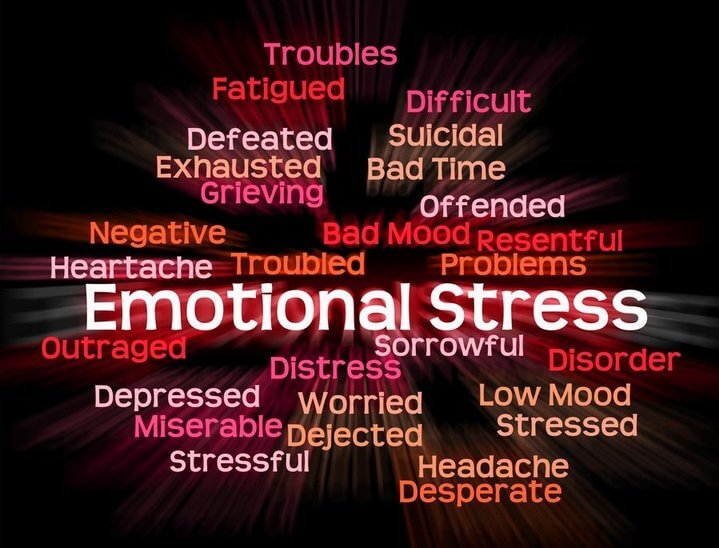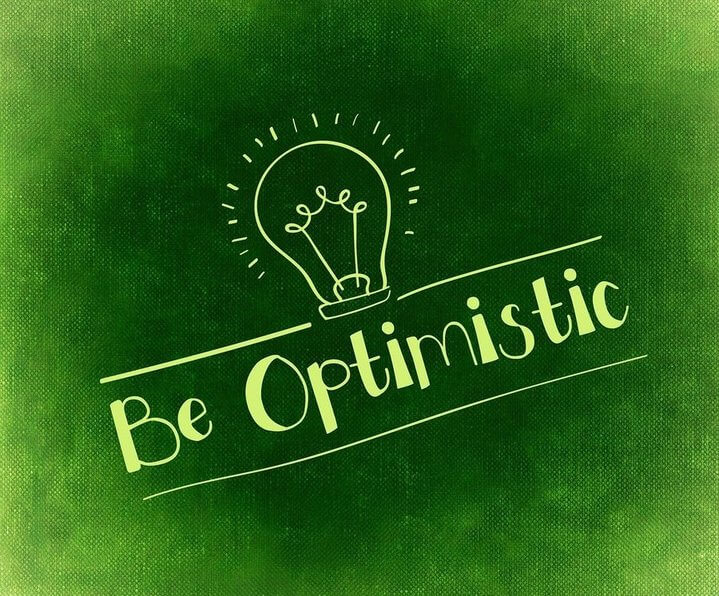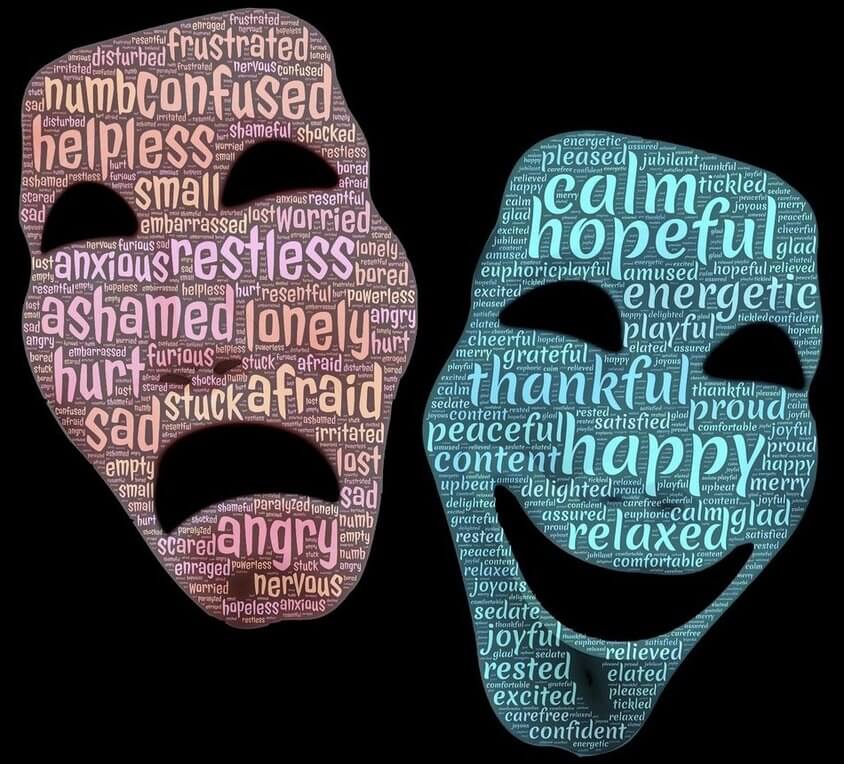Do you ever find yourself losing your temper over small things, or feeling overwhelmed by frustration and anger? We’ve all had those moments where we wonder how on earth we can keep our cool when it really counts. Without effective anger management techniques, it can be quite a challenge.
Anger is an emotion that can range from mild irritation to intense fury. Its causes vary from frustrating situations, disappointment, fear, or feeling threatened.
When we get angry, our heart rate goes up, our blood pressure rises, and we may feel a rush of adrenaline.
Feeling angry is not bad, it’s natural. It can be a healthy response to certain situations, motivating you to take action. But, it is how you respond to anger that can be problematic. It can impact your relationships, career, and quality of life in a negative way. It can hurt your well-being and self-development.
So, it is crucial to learn how to manage and express it in a healthy and productive way.
With the right tools and mindset, you can learn effective ways to manage your anger and emotions. That way, you’ll never have to worry about losing control in those heated situations.
In this blog post, we’ll share 5 tips for anger management that will help turn those emotions into moments of growth and self-awareness.
You will learn helpful strategies for working through your anger so that you can cultivate a more peaceful state of mind today!
Let’s get started!
What Sparks Anger Within You?
Anger is a complex emotion that can stem from various sources. It can be a natural response to certain situations. But, the causes behind it are often complex and multifaceted.
Sometimes anger can be a natural response to a threat or a perceived injustice. Other times, it can be a result of personal disappointment, frustration, or unmet expectations.
Biological, environmental, and social factors can also contribute to one’s experience of anger. For example, medical conditions like chronic pain can make people more prone to irritability and outbursts. This may happen with hormonal imbalances as well.
Cultural norms and values can also influence how you view anger and whether you feel comfortable expressing it or not.
Bear in mind that your own experiences and perceptions often influence your emotional responses. What could make you angry might not have the same effect on someone else.
So take the time to understand your triggers and underlying emotions. Practice self-awareness to begin managing your responses in a healthy way.
Related article: The Journey to Self-Awareness: 6 Steps to Discovering Your True Identity

Keeping Your Cool: 5 Effective Tips for Anger Management
As much as we like to think that we’re cool, calm, and collected, we all know that anger can creep up on us when we least expect it.
So, learning how to manage your anger is key to keeping it from controlling your life. Let’s dive into 5 tips for anger management that will help you stay cool and keep a peaceful mind:
1. Take your time to talk
When you’re upset, it’s important to take your time to gather your thoughts and emotions before expressing them.
Don’t feel pressured to talk right away if you’re not ready. Give yourself the time and space to process your feelings and find the right words to express them.
It’s okay to reserve the right to speak when you feel calmer and composed.
2. Remember who you’re talking to
Let’s face it, sometimes the people you love most can get on your nerves. But, before you unleash your fury, remember who you’re talking to.
Is it your best friend who’s always been there for you? Your significant other who makes your heart skip a beat? Or your family member who’s seen you through thick and thin?
Keeping this in mind can help you approach the situation with more empathy and understanding.
Instead of reacting impulsively, take a deep, deep breath. Remember the positive qualities of the person you’re speaking to. This can help you express your anger in a constructive way that will not damage the relationship.
It’s possible to address the issue without attacking the person or making hurtful comments.
Do your best to approach the conversation with a positive mindset. You’ll be more likely to find a solution that works for everyone involved.
Express your feelings in a way that resonates with you and them. After all, they’re important to you!
3. Resistance will show up
It’s natural for resistance to arise when you begin to take control of your emotions. You may find yourself having thoughts that attempt to trigger your anger again.
It’s important to recognize that these thoughts are just a form of resistance and not a true reflection of reality. They’re not worth your time or energy.
By acknowledging this, you cultivate a greater sense of awareness and control over your anger. You can choose to respond in a more constructive way.
4. Realize that you don’t need to act angry
Feeling angry is completely normal. But, you don’t have to let it dictate how you behave. Be aware that you have a choice in how you react.
While you may be justified in your anger, it’s important to remember that you can choose how you express it. Being respectful and kind, even in the face of it, is always the better option.
You don’t have to resort to disrespectful or hurtful behavior, even if the other person has upset you.
By working on your anger management, you can communicate your feelings in a calm manner. Taking control of your reactions can lead to a more positive outcome.
5. Focus on solutions, not blame
When we experience anger, it’s natural to want to point the finger at someone or something as the source of our frustration. But, when it comes to managing anger, it’s important to shift our focus away from blame and towards solutions.
Focusing on solutions means taking a proactive approach to resolve the issue at hand. It means taking responsibility for your emotions and actions and seeking out ways to address the root cause of your anger.
Blaming, on the other hand, can keep you stuck in a negative cycle of resentment and bitterness.
One technique for focusing on solutions is to ask yourself a series of questions. These will help you identify what you can do to address the situation in a positive way.
For example, you might ask yourself: “What actions can I take to improve this situation?” or “What steps can I take to communicate my needs?”
By shifting your focus toward actionable solutions, you can start to take meaningful steps toward resolving the underlying issues that are causing your anger.
Another important aspect of focusing on solutions is maintaining a constructive attitude. It’s easy to fall into a negative mindset when you’re feeling angry. But this may only exacerbate the problem.
Instead, you can work to maintain a positive outlook and approach the situation with a mindset of problem-solving and growth. This may involve:
- Re-framing the situation in a positive light.
- Identifying opportunities for growth and learning.
- Focusing on the potential benefits of finding a solution.
So, let’s put down the blame game and pick up the can-do spirit!

Recognizing your emotional hot buttons for effective anger management
Identifying personal triggers can be a game-changer when it comes to anger management.
Anger can become overwhelming pretty fast. Understanding what triggers it and what may escalate it is the first step in learning to control it.
One common trigger is feeling threatened or attacked, whether physically or verbally. This may cause you to become defensive and react with aggression.
Other triggers may include:
- Feeling disrespected or unheard
- Experiencing frustration
- Difficulty in achieving goals
- Feeling overwhelmed or stressed
- Facing personal challenges or setbacks
Even minor inconveniences can sometimes become major irritants, causing you to feel angry.
Personal triggers are subtle and unique to each individual. They are specific situations that cause emotional distress or negative responses within you.
To uncover them, take some time to reflect on your reactions to certain situations. Notice if you feel angry or stressed in specific environments or around certain people.
Start paying attention to the situations or people that tend to push your buttons. Do you get angry when someone interrupts you at work? Does talking to a certain friend leave you feeling drained or upset?
Keep track of your reactions and patterns and understand what sets you off. Then, you can take steps to either avoid those situations or learn how to deal with them in a healthier way.
By identifying your triggers you can develop coping mechanisms. Then you can manage your anger and prevent it from spiraling out of control.
Identifying your unique triggers is the first step towards emotional self-awareness and growth.
Effective ways to handle your triggers
Sometimes, feeling angry is completely natural. But, it’s crucial to understand and tackle the things that trigger this emotion.
Your well-being is important, so try your best to rise above it. Even if you’re good at managing anger, it’s always best to avoid reaching that point in the first place.
The following are 3 easy tips to change your state:
- Take a time-out.
If you start to feel overwhelmed with anger, take a break and step away from the situation. Go for a walk, practice deep breathing, or take a few minutes by yourself to calm down. - Connect with nature.
Spending time in nature can be calming and grounding. Try taking a hike or sitting outside and taking in the beauty of your surroundings. - Use humor to defuse the situation.
If appropriate, try cracking a joke or finding something to laugh about. Humor can help take the edge off and diffuse the tension.
One thing you shouldn’t forget is to practice forgiveness and letting go. Carrying around grudges and resentments can bring you down and cause all sorts of negative emotions and health issues. So, it’s better to lighten your load and free yourself from these burdens.
The Importance of Anger Management
Have you ever found yourself in a situation where your anger got the best of you? Maybe you snapped at a loved one or lashed out at a co-worker?
It happens to the best of us. But it’s important to remember the consequences that can come with uncontrolled anger.
When you’re angry, you’re more likely to make rash decisions that could hurt yourself or others and can lead to regrettable actions.
Thus, anger management is important for maintaining healthy relationships and achieving personal growth.
Learning to control your anger can help you to:
- Communicate better
- Resolve conflicts peacefully
- Improve our well-being.
It can also help you become more self-aware, as you learn to recognize and regulate your emotions in a better way.
Plus, once you identify and understand the root cause of your anger, you can address it and work toward a solution.
By taking steps to manage anger, you can enjoy greater peace of mind, better health, and more fulfilling relationships.
So, next time you feel yourself getting worked up, take a step back, breathe, and try to gain some perspective. Remember, controlling your anger isn’t about suppressing it, but rather channeling it in a healthy manner.

Negative Consequences of Uncontrolled Anger
When anger takes over, it can result in high levels of stress, anxiety, and even depression. Not only that, but it can also bring physical symptoms like headaches and digestive issues.
Check out this article by the American Heart Association. They dive into a study on how having a propensity to anger can predict the risk of developing coronary heart disease. It’s worth a read!
Moreover, when you lash out in anger, you may say things you regret. This could damage the trust and intimacy in your relationships.
You may also experience social isolation. Others may be hesitant to be around you if you are prone to outbursts.
Additionally, unchecked anger can lead to undesirable outcomes in your career. It may hinder collaboration with colleagues and impede your reputation among peers.
In extreme cases, anger can even lead to job loss or legal troubles.
So, it’s important to handle anger in a healthy manner. Not having anger management skills can affect your relationships and well-being.
By practicing self-awareness and anger management you can learn to take steps to keep a peaceful state of mind.
Seek support if necessary.
It is possible to control your emotions and express them in a positive way.
Related article: Empower Yourself: How to Master Your Emotions for a Fulfilling Life
How does anger impact your self-development
Anger is an emotion that can have a profound impact on your journey of self-development. It has the power to propel you forward or hold you back, depending on how you navigate and harness its energy.
When channeled effectively, anger can become a catalyst for transformation. It can ignite a fire within you, motivating you to make positive changes in your life. It serves as a wake-up call, signaling areas where you may need to address underlying issues.
Anger can help people set boundaries, stand up for themselves, and assert their rights. Also, a lot of social justice movements began with folks who became upset about the unfairness they saw and went through.
By embracing this emotion, you can tap into its energy to drive meaningful change.
But, unchecked or misdirected anger can hinder your progress. It can cloud your judgment and impair your ability to make sound decisions. It can create a cycle of negativity that hampers your well-being and self-improvement.
So, managing and understanding your anger is crucial for your personal growth. It involves acknowledging the emotion and examining its underlying triggers. And then, learning healthy ways to express and channel it.
Start by developing emotional intelligence and cultivating effective anger management techniques. This will help you navigate its complexities and transform it into a catalyst for personal empowerment.
So, next time you find yourself feeling angry, take a moment to reflect on it. Pause, take a deep breath, and consider how you can channel it toward constructive change.
With an aware and purposeful approach, you can transform it into a stepping stone on your path of self-development. You can harness its energy to propel you toward a more fulfilling life.
Anger management: Transforming anger into positive energy
Anger is a natural human emotion and can be a powerful motivator. When channeled in the right way, it can lead to positive outcomes and personal growth.
One effective way to use anger is by channeling it into problem-solving. Instead of allowing it to consume you, take a step back and use that energy to find solutions and make positive changes. By focusing on solutions, you take control of the situation and become empowered.
For instance, if you feel angry about a social issue, use that energy to raise awareness, start a conversation, or take action to effect change. Let your anger fuel your determination to make a difference.
Another valuable approach is to use anger as a motivator for personal growth. When you feel angry about something, take it as an opportunity for self-reflection. Explore its underlying causes and consider how you can improve your behavior and responses.
By taking responsibility for your actions, you can learn from your anger and use it to become a better version of yourself.
For example, if you’re angry about a mistake you made, let that anger motivate you to work harder. Learn from the experience and avoid making the same mistake in the future. Use it as a catalyst for personal improvement.
By using anger as a motivator for positive change, you can transform it into positive energy. Rather than allowing it to control you, harness its power to drive you forward and improve your life. Embrace the lessons it has to offer, and let it become a force for personal growth and positive transformation.

Final Thoughts
When you feel anger rising, it’s crucial to take a moment and step back. Even if your blood is boiling, take a deep breath and create some distance between yourself and whatever triggered you. This break gives you time to regulate your emotions, calm down, and decide the best course of action.
Be mindful of your reactions. Ask yourself: “Am I about to do or say something that I will regret later?
Taking control of your mind and emotions from all kinds of triggers is essential. Use techniques such as deep breathing, counting to 10, or other grounding practices. This can benefit your emotional well-being in the long term.
On top of this, it’s beneficial to look at the potential positive angles in every situation that angers you. Acknowledging these can sometimes bring clarity and reduce your feelings of frustration.
Using anger as resourceful fuel rather than a reactionary force has its benefits. By understanding anger you may become more aware and increase your level of self-control.
In the end, managing anger requires self-awareness, discipline, and self-control.
So, try to incorporate these tips and techniques into your life. You will take control of your emotions and avoid the negative consequences of anger. You can learn to harness the positive power of this emotion.
How do you manage your anger? What strategies do you use to control your emotions? Let me know in the comments below.


0 Comments